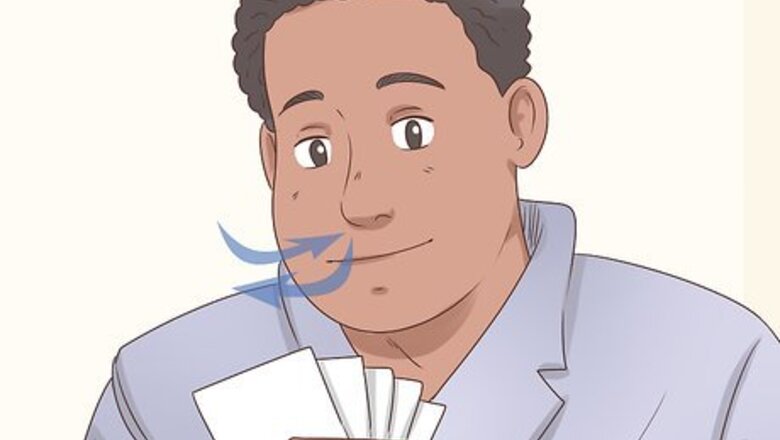
views
Keeping Your Face in Check
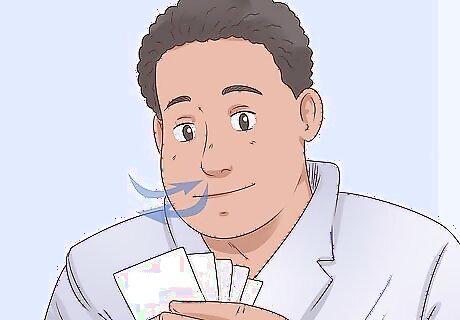
Relax your face. Your face is the first giveaway that could cost you a game of poker. Keeping your emotions and reactions in check regarding hands dealt to you is a key part of poker. Any type of expression sacrifices your power in situations with your opponents. Clear your mind, wiggle your face to loosen the muscles, take a deep breath, and relax. You want to be in control of the situation and if you’re too stressed, you can lose that control. Hiding your reactions is power because no one knows what you’re thinking or what you’re about to do.
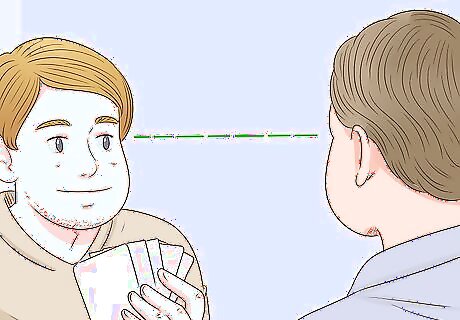
Maintain eye contact with others. You can win the upper hand by showing people you are confident and intimidating by locking eyes with them. Meeting people’s eyes also shows that you have nothing to hide so they don’t know what to expect from you. Look at the bridge of their nose to stare them down and keep your focus.
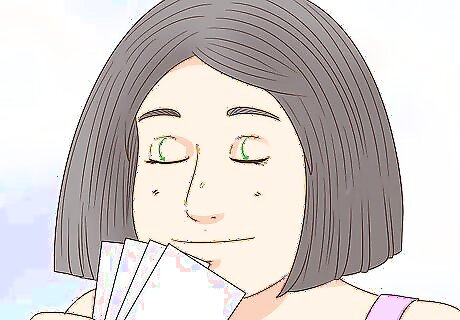
Blink occasionally to avoid staring. Staring into space or focusing too hard on your cards is also how your poker face can be compromised. It either shows that you aren’t paying attention, or that you’re concerned for your hand and chances. Remind yourself to blink so that your eyes don’t dry out while you concentrate. Excessive blinking can also show nervousness, so don’t go overboard. There’s a balance between blinking enough to keep from staring and keeping your eyes focused so they don’t flit around. Staring too hard can also cause your shoulders to bunch up and posture to suffer. Focusing too hard on one thing visually can also distract you and you may miss an important play.
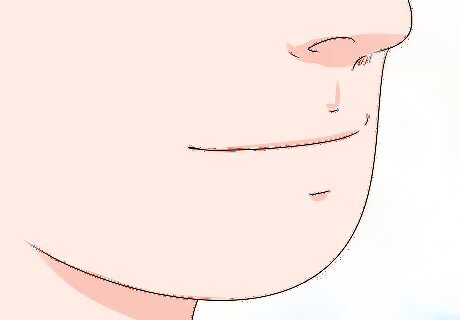
Keep your lips together and jaw relaxed. Your mouth is the main support for your face muscles and any tension, smile, frown, or smirk will influence the rest of your face. Relax your jaw first by letting it go slack, creating space between your back teeth. Open and close your mouth a few times to help relax as well. Avoid showing your teeth. Whether it’s for a small grin or grimace, visible teeth means your mouth is moving and movement can give you away. Don’t grind your teeth. Your jaw will show the pressure your teeth are under.
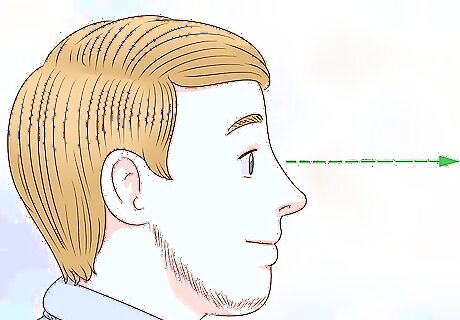
Look straight ahead. Don’t look up or to the left or right out of the corners of your eyes. These are all tells which are little clues to your opponents that you have something to hide, whether it’s a good hand of cards or bad. It’s hard to do, but minimize your eye movements. Even squinting or excessive eyebrow raises can give away your reaction.
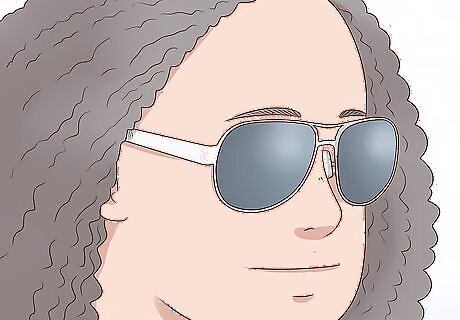
Wear sunglasses to conceal where you are looking. To protect yourself, wear sunglasses so you don’t have to worry about giving anything away with your eyes. Sunglasses won’t be a problem indoors if you have enough lighting.
Improving Your Body Language
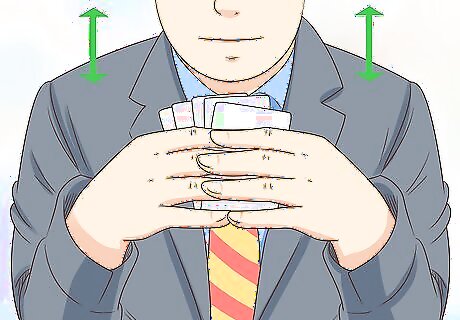
Relax your posture. Take a deep breath, raise your shoulders to your ears, and let them drop down. Arch your back and then let it settle into a natural, upright position. Shake out any tense limbs and roll your head around on your neck. All of these will help you get back to a proper posture and break up any tension you have built up that will reveal your anxiety.
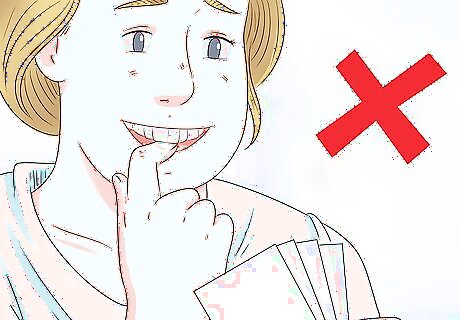
Avoid fidgeting or adjusting your body or clothes. Whether you’re excited or nervous, small twitches are a big giveaway to your emotions. Take a mental note to see if you’re exhibiting any little movements that come from nervous energy. Pay attention to yourself to make sure you’re not demonstrating any of these tics: Knuckle cracking Fingernail biting Tapping fingers Leg cracking Pulling on your collar or tie or shirt sleeves Rubbing your face, hands together, or arms
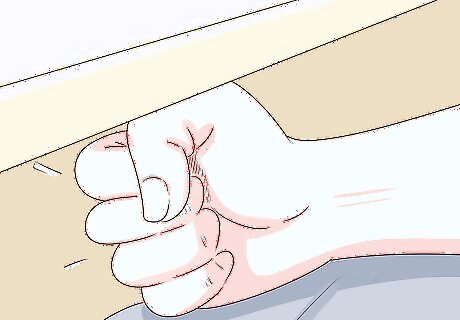
Divert any tension to something else. Hold a stress ball or curl your hand into a fist to take any tension your body is storing. It can be hard to make yourself relax your entire body, so if you have to tense up, try allowing only one part of your body to hold that stress. Conceal any movement or tension that you have. For example, hold your fist under the table or press your knees together to redirect any tension to where no one can notice it. Don’t grip your cards too tightly or you’ll have white knuckles which will show.
Maintaining a Neutral Voice
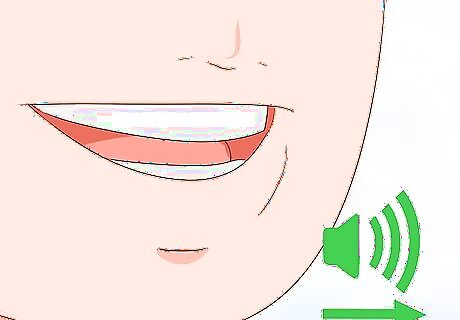
Speak with an even and balanced tone. Your voice is also capable of revealing your emotions. A quiver in your voice or jumping to another octave while speaking is an easy tell for your opponents. Clear your throat or take a full breath before speaking so that you have enough air to talk in a neutral register.
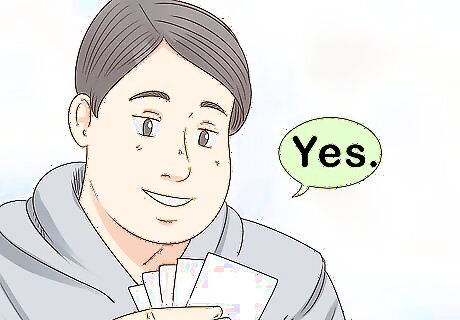
Keep your words few and simple. Stick to the facts of what’s happening and you won’t need too many words. Stumbling over your sentences, stuttering, or saying “um” too many times shows that you are nervous or unsure of yourself. Short, sweet, and to the point is how you should talk when in high-stress situations. One-word answers are acceptable, especially in high-stakes games like poker. You need to concentrate more on the game anyways rather than shooting the breeze with your opponents. If you're playing a game with friends and there isn't real money at stake, the atmosphere may be a little more relaxed so talking may more appropriate. Just watch yourself when examining your hand.
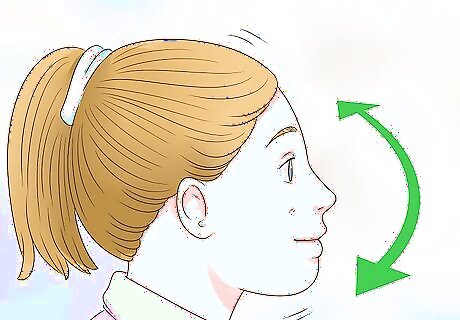
Nod your head if you aren’t comfortable speaking. When asked a question by the dealer or someone else, it’s acceptable to simply answer “yes” or “no” by nodding or shaking your head. If you don’t feel comfortable opening your mouth because you’re afraid that your voice will give you away, simply use relaxed body language to convey your answer. To distract yourself and keep from speaking, chew gum or keep snacks at the table. It helps to think about what you want to say before you speak. That way you can keep yourself from sounding excited or disappointed.
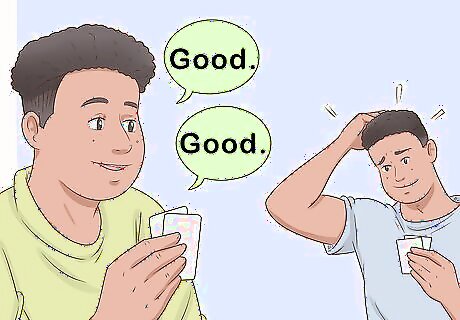
Confuse your opponents by talking constantly. To be completely counter-intuitive, instead of staying silent you can comment on every hand dealt or result. You can pepper in false reactions too to throw your opponents off. Constantly talking can also distract your opponents by diverting their attention from the game to whatever you're saying. Bluffing is an important part of poker. For example, you can receive a bad hand and pretend like you just got a winning hand. If you're consistently inconsistent with your reactions, no one will be able to guess your true reactions. This is much harder to do but can work in your favor.












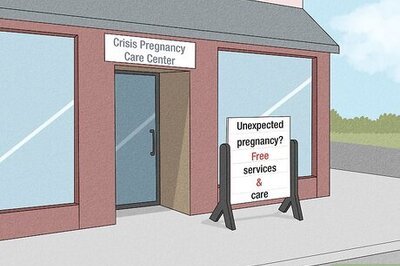
Comments
0 comment